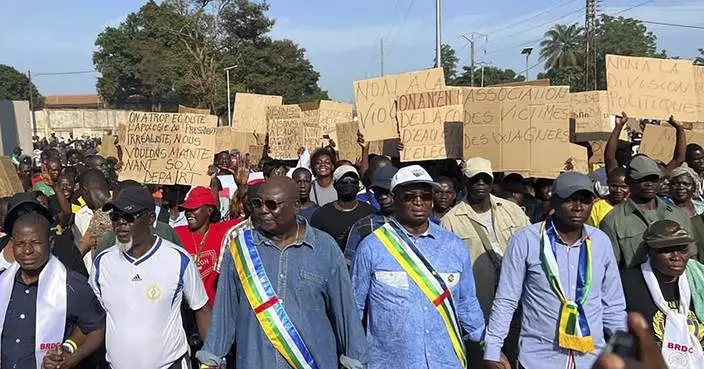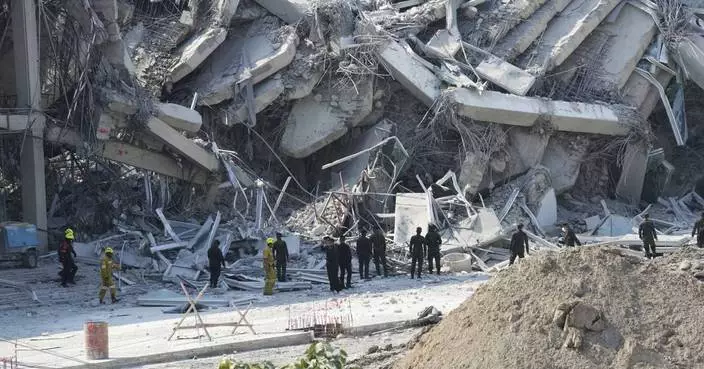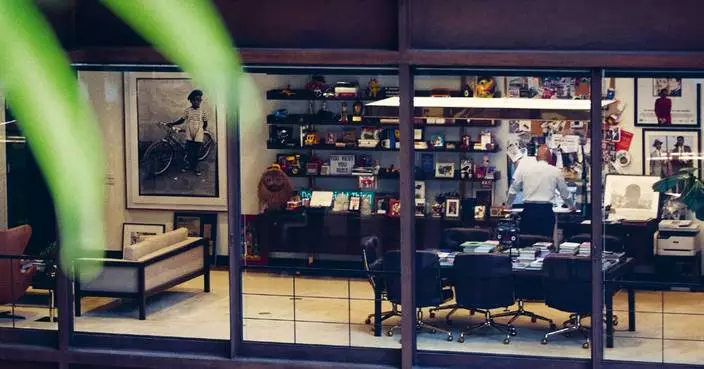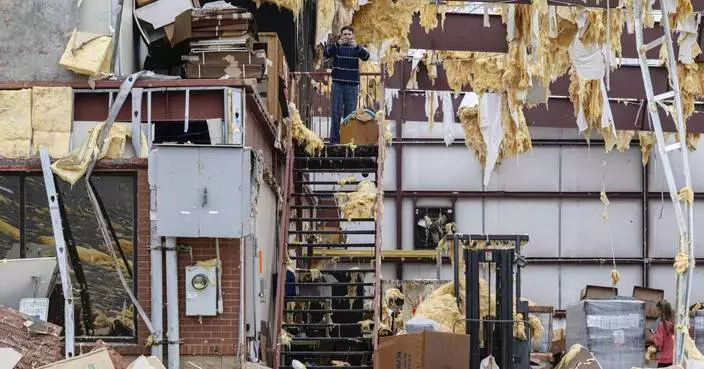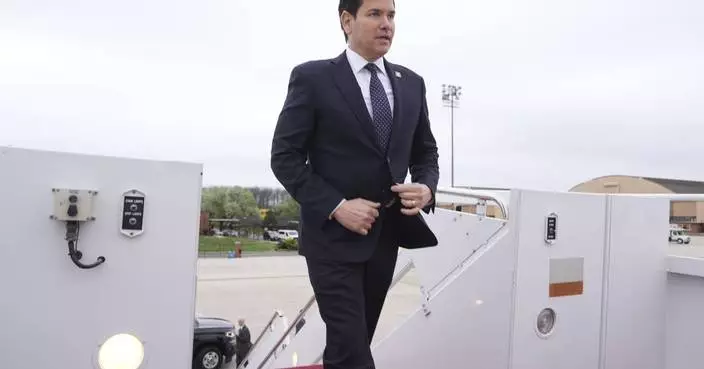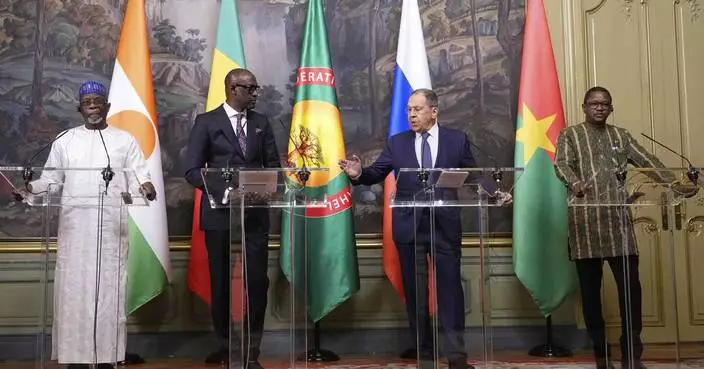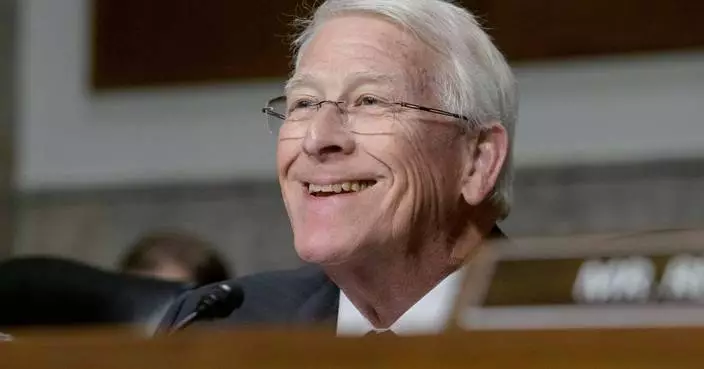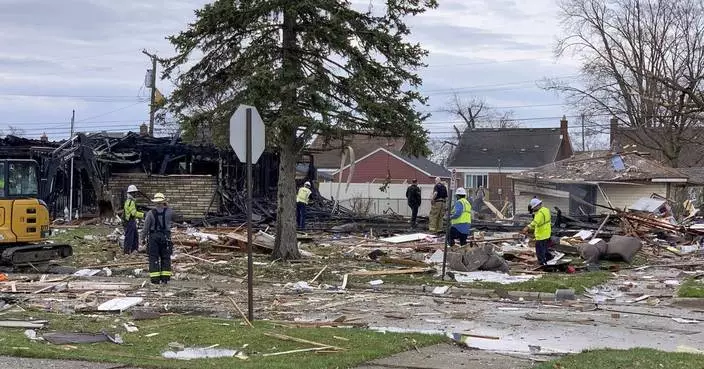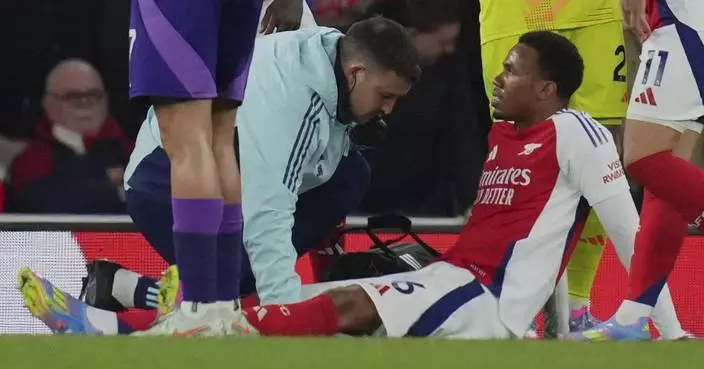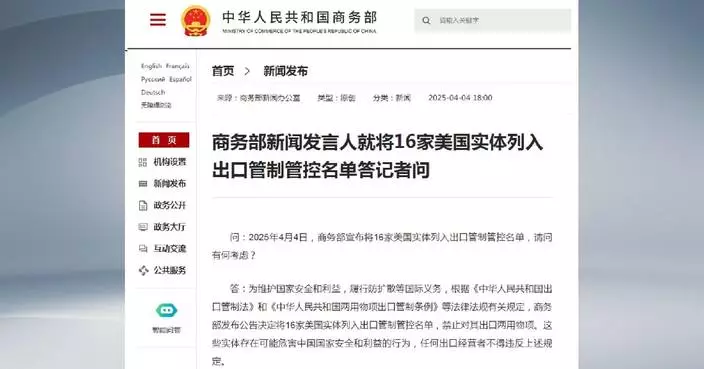Around 130 dead seals have been washed up on the shores of Russia's Lake Baikal, the world's deepest lake, authorities said Tuesday.
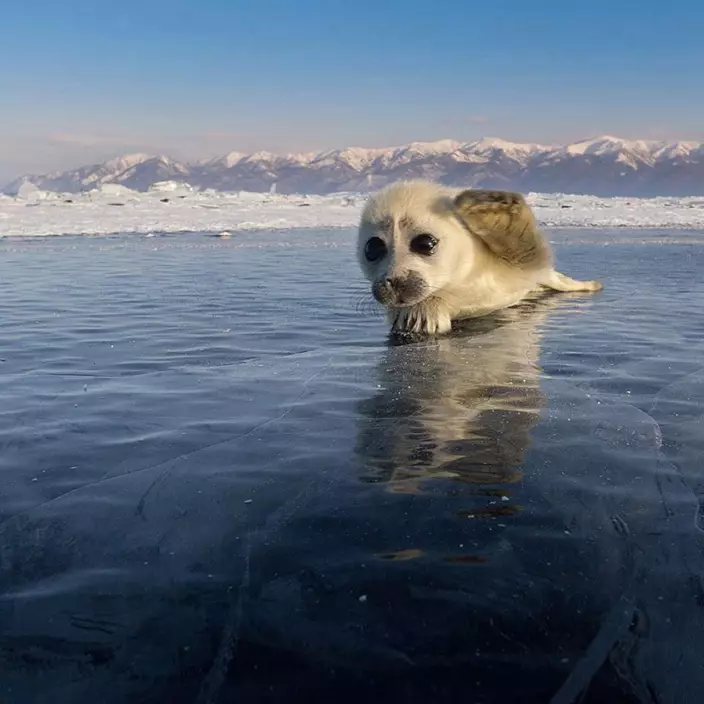
Photo via Earth Pics, Facebook
The Baikal seal is the tiniest species in the world and no one know why they could colonise the ancient Siberian lake but they are exclusively in Lake Baikal in southern Siberia, Russia, near the Mongolian border.
Lake Baikal has thousands of endemic creatures has been suffering from a series of harming phenomena in recent years.
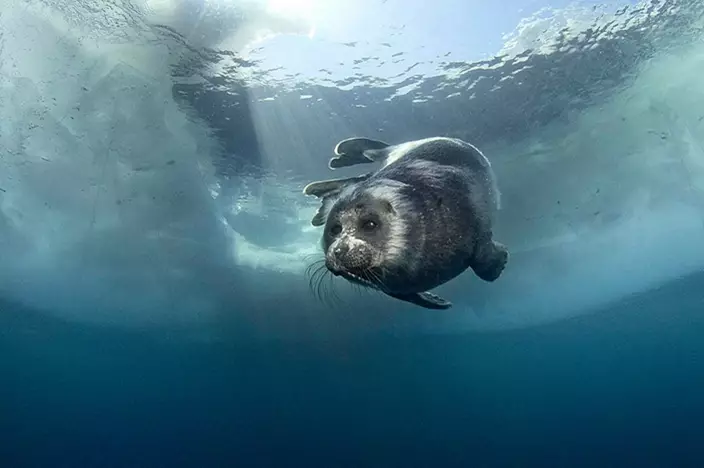
Photo via Russia Friends, Facebook
Environmental ministry spokesman Nikolai Gudkov said there had been about 130 animals found dead. He said they had taken water samples to understand whether the incident is caused by water pollution.
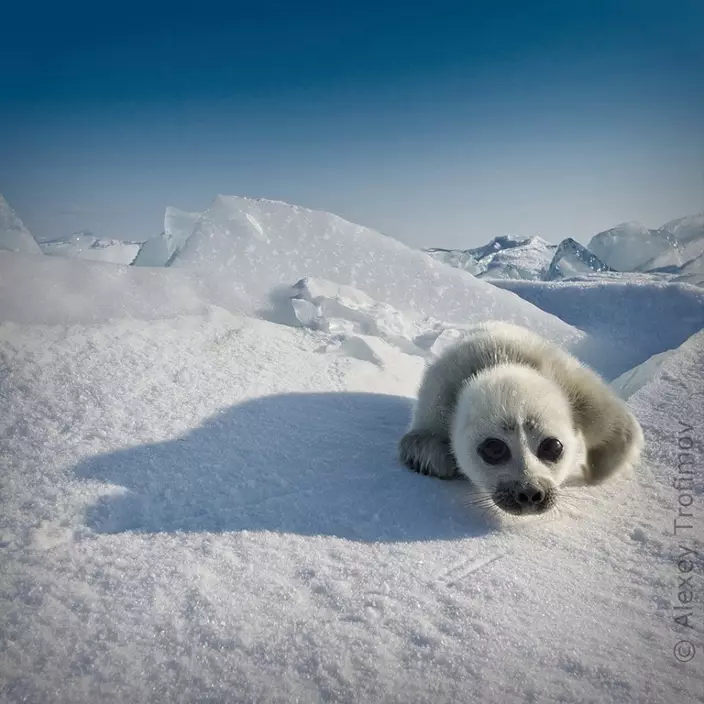
Photo via Russia Friends, Facebook
He said the preliminary theories suggest that the death is not related to the pollution.
He also added that scientists had taken the animal's biopsies but the seals are not endangered species while their population has actually increased to around 130,000.
According to the IUCN, future climate change can potentially make an effect on seals' breeding. While the lake is isolated from lands, sea animals living there are easy to be affected by the climate change since they can't move to other habitats.
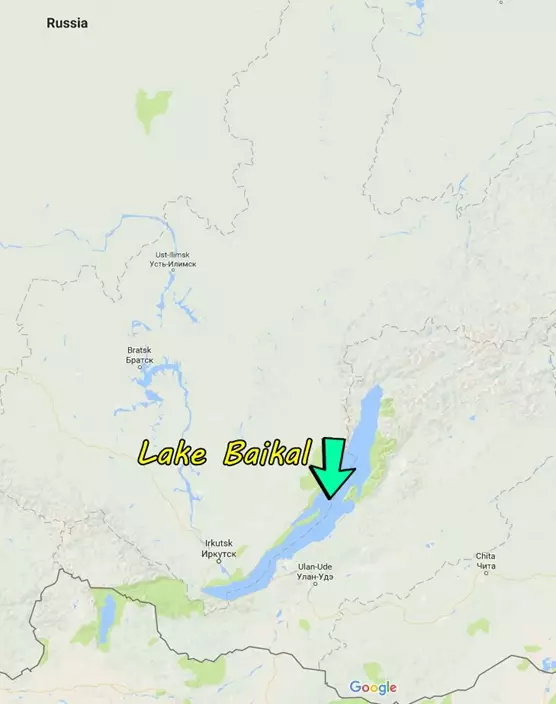
Google map
BRUSSELS (AP) — European NATO allies and Canada on Friday said they are willing to ramp up defense spending but are cool on American demands for the size of their military budgets, particularly given U.S. President Donald Trump’s readiness to draw closer to Russian leader Vladimir Putin.
U.S. allies have spent billions of dollars more on defense since Putin ordered a full-scale invasion of Ukraine more than three years ago, but almost a third of them still don't meet NATO’s target of at least 2% of their gross domestic product.
Trump has said that U.S. allies should commit to spending at least 5%, but that would require investment at an unprecedented scale. According to NATO figures, the U.S. was projected to have spent 3.38% last year, the only ally whose spending has dropped over the last decade.
“It is important that we all agree that Russia is a threat. If not, I don’t know why we should always increase more and more defense spending,” Canadian Foreign Minister Mélanie Joly told reporters at NATO headquarters in Brussels.
NATO leaders said at a summit last year that Russia "remains the most significant and direct threat to Allies’ security.”
Trump’s public rehabilitation of Putin, who had become an international pariah indicted for war crimes, has disturbed U.S. allies, and they believe that the decision to rule out NATO membership for Ukraine weakened Kyiv’s hand at the negotiating table before peace talks have even begun.
Beyond that, Europe and Canada were alarmed last month when the United States split with European allies by refusing to blame Russia for its invasion of Ukraine in votes on three U.N. resolutions seeking an end to the war.
U.S. Secretary of State Marco Rubio said that Washington isn't insisting that its allies hit the 5% spending target overnight, but “we think that’s what NATO allies need to be spending for NATO to face the threats that itself has identified and articulated.”
Rubio said that the extra spending is required to beef up military capabilities.
“We are as involved in NATO today as we have ever been, and we intend to continue to be. But it has to be a real alliance. And that means that our alliance partners have to increase their own capabilities,” he said.
Asked whether that the U.S. would also match the 5% target, Rubio said: “Sure. We’re heading there now.”
France has set itself an “objective of 3%-3.5%, and we are preparing to reach 3%-3.5%, which is about the level of American defense spending,” French Foreign Minister Jean-Noël Barrot said. France was estimated to be spending 2.06% last year.
He said that new funds should be spent on European rather than American equipment. In recent years, European allies placed around two-thirds of their equipment orders with U.S. defense companies.
Even as the Trump administration demands that defense spending be ramped up, the president’s tariff war is roiling stock markets and is likely to damage economic growth around the world, including among U.S. allies at NATO.
Article 2 of NATO’s founding treaty states that allies “will seek to eliminate conflict in their international economic policies and will encourage economic collaboration between any or all of them.”
Asked whether the tariffs constitute a breach of the treaty, NATO Secretary-General Mark Rutte said: “No, I don’t think so. We have seen in the past many examples of differences of view, of fights over tariffs. This has happened before without that being in violation of Article 2.”
Pressed on how allies might provide for their security, if they no longer have budget space, Rutte said: “I don’t think I’m helping this alliance by commenting on something which is not really part of alliance policy, and that is to make sure that we can defend ourselves.”
Norwegian Foreign Minister Espen Barth Eide said that NATO members are working on setting a new spending target, to be announced at the next summit in June.
But he said that “5% is of course much more than the U.S. itself spends and it’s a very high ambition and we are not ready to commit to a number at this time. Just as it’s important to spend more, it’s also important to spend more smartly.”
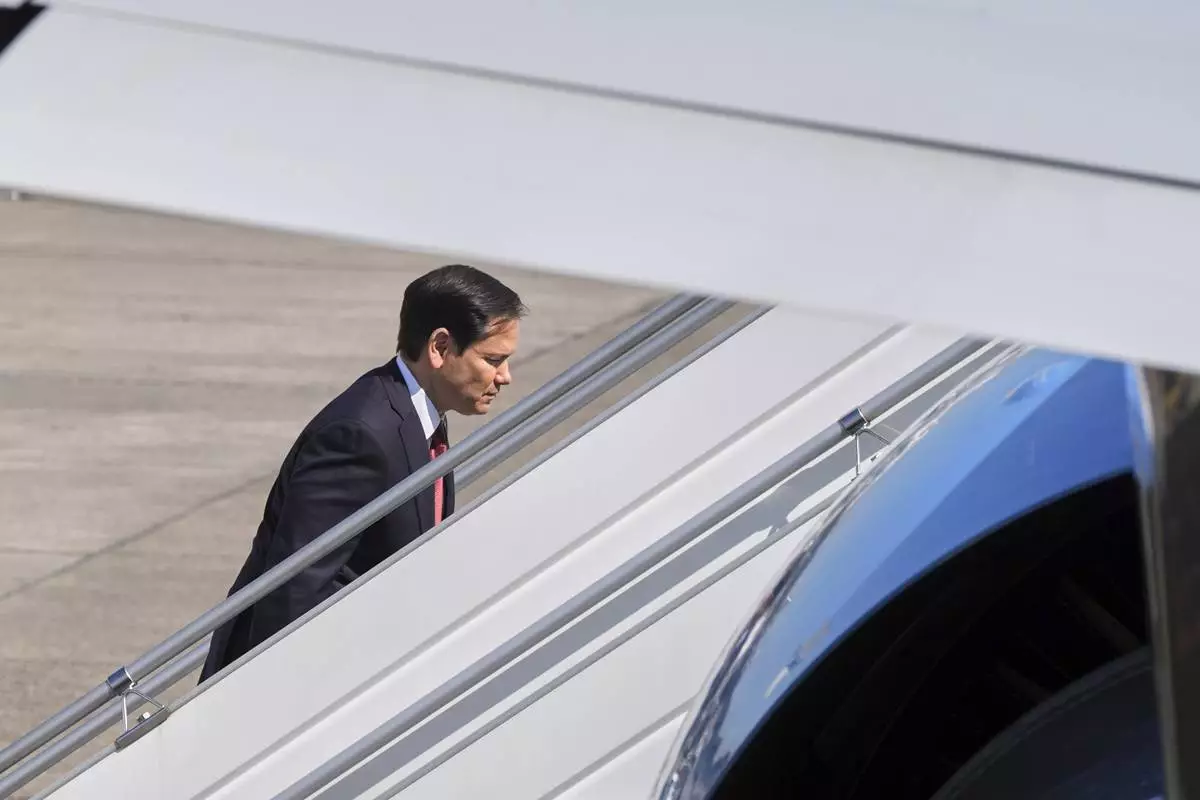
U.S. Secretary of State Marco Rubio boards to the plane after his trip in Brussels, Friday, April 4, 2025. (AP Photo/Jacquelyn Martin, Pool)
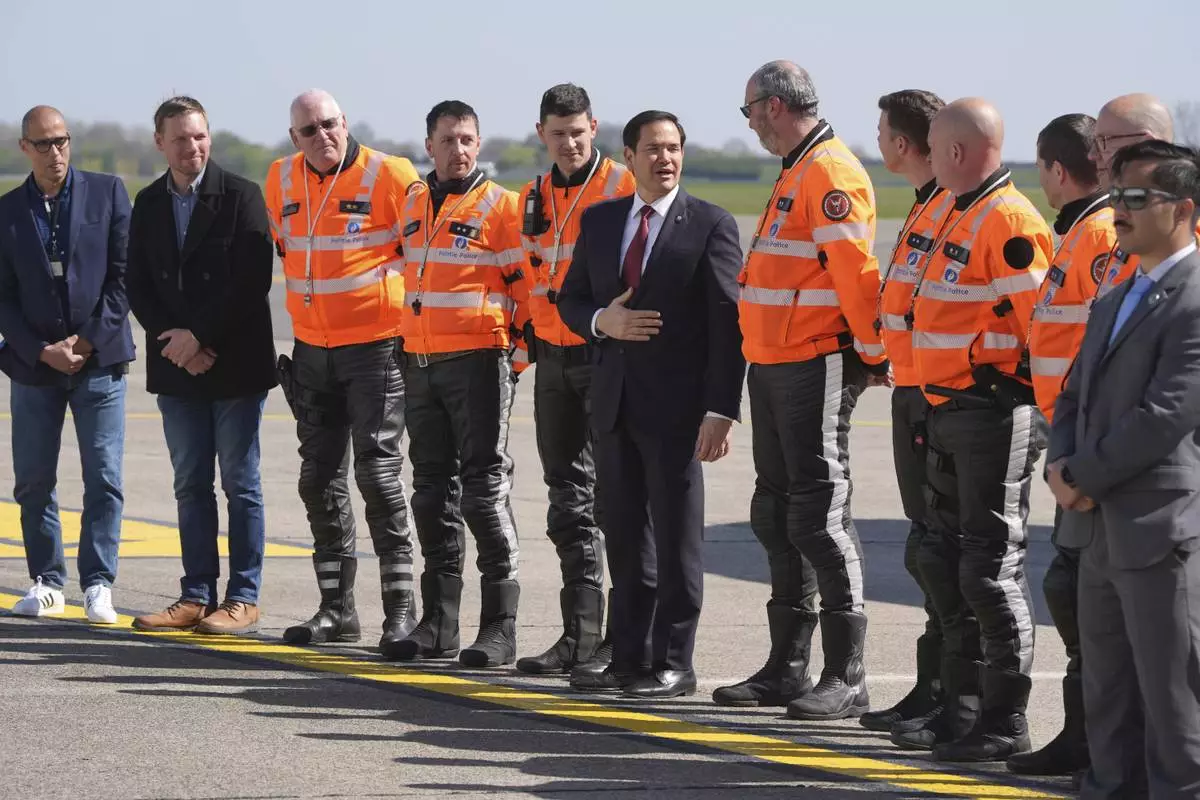
U.S. Secretary of State Marco Rubio talks with Belgians police officers before his departure, in Brussels, Friday, April 4, 2025. (AP Photo/Jacquelyn Martin, Pool)
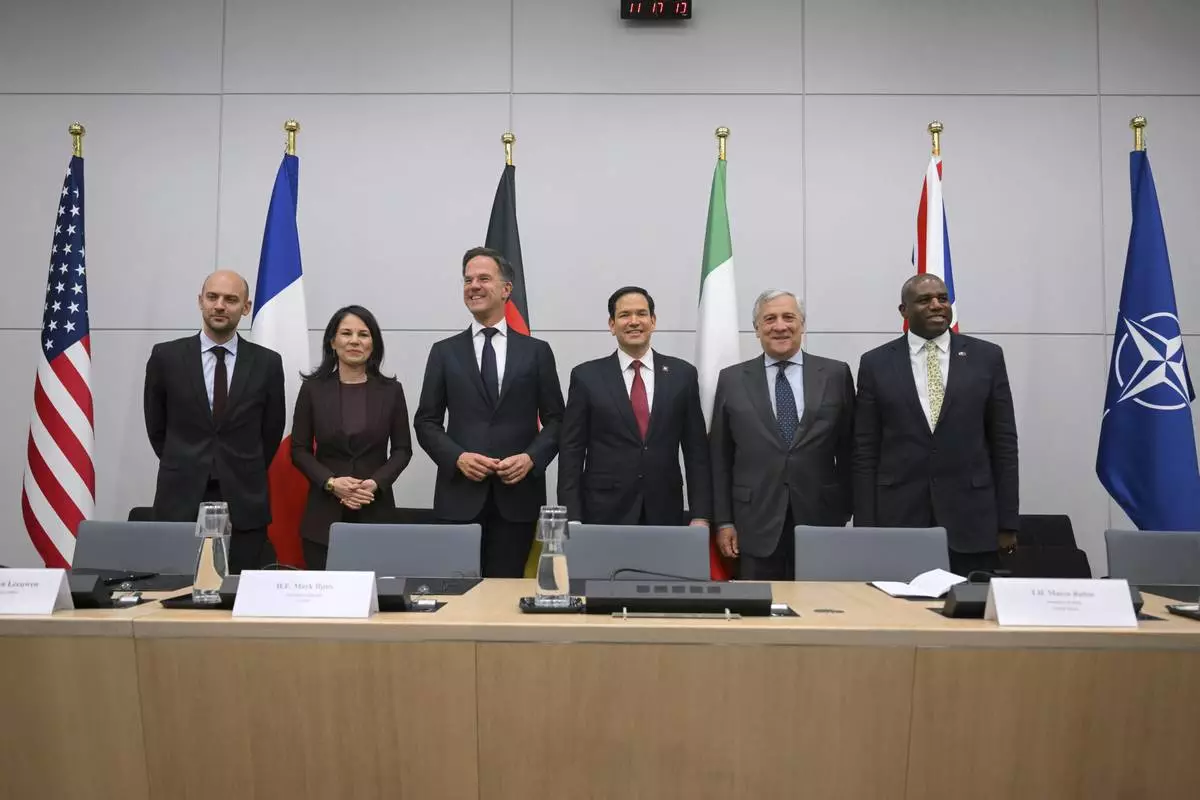
From left, French Foreign Minister Jean-Noel Barrot, Germany's Foreign Minister Annalena Baerbock, NATO Secretary General Mark Rutte, United States Secretary of State Marco Rubio, Italy's Foreign Minister Antonio Tajani and Britain's Foreign Secretary David Lammy pose for a group photo during a meeting on the sidelines of the NATO foreign ministers at NATO headquarters in Brussels, Friday, April 4, 2025. (Nicolas Tucat, Pool Photo via AP)
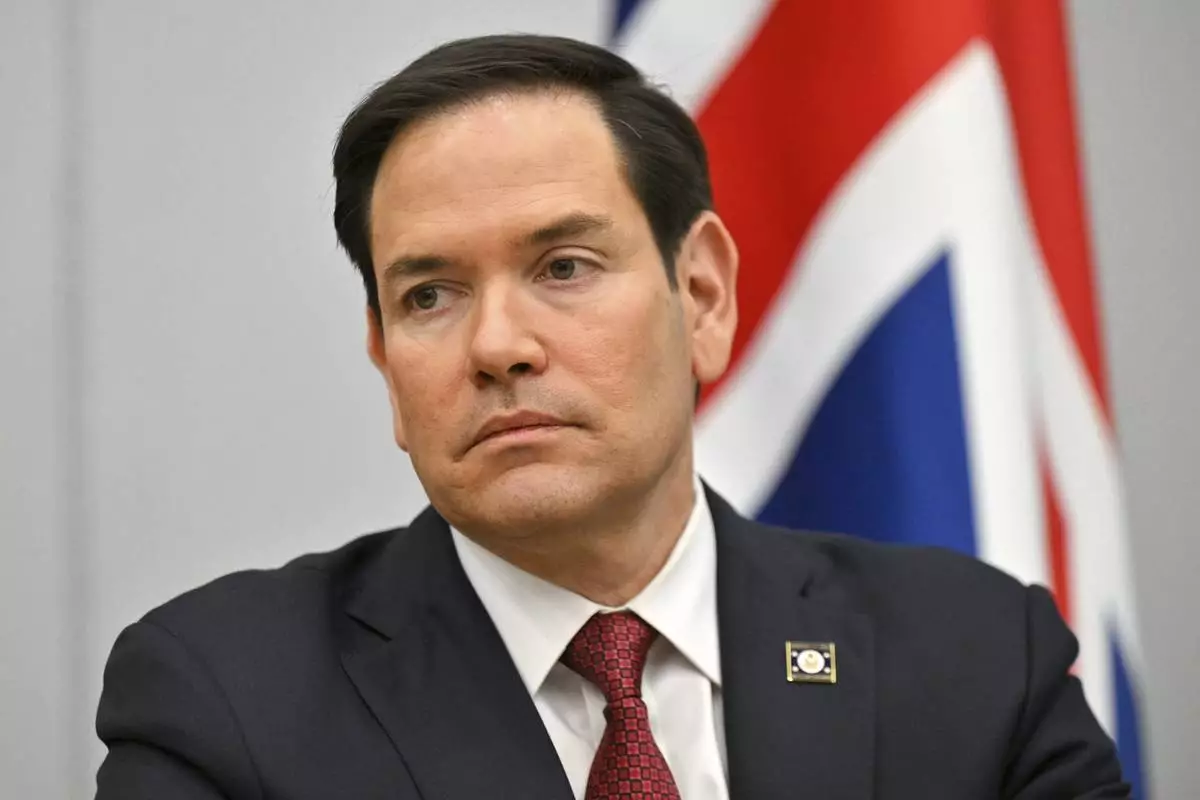
United States Secretary of State Marco Rubio during a meeting on the sidelines of the NATO foreign ministers at NATO headquarters in Brussels, Friday, April 4, 2025. (Nicolas Tucat, Pool Photo via AP)
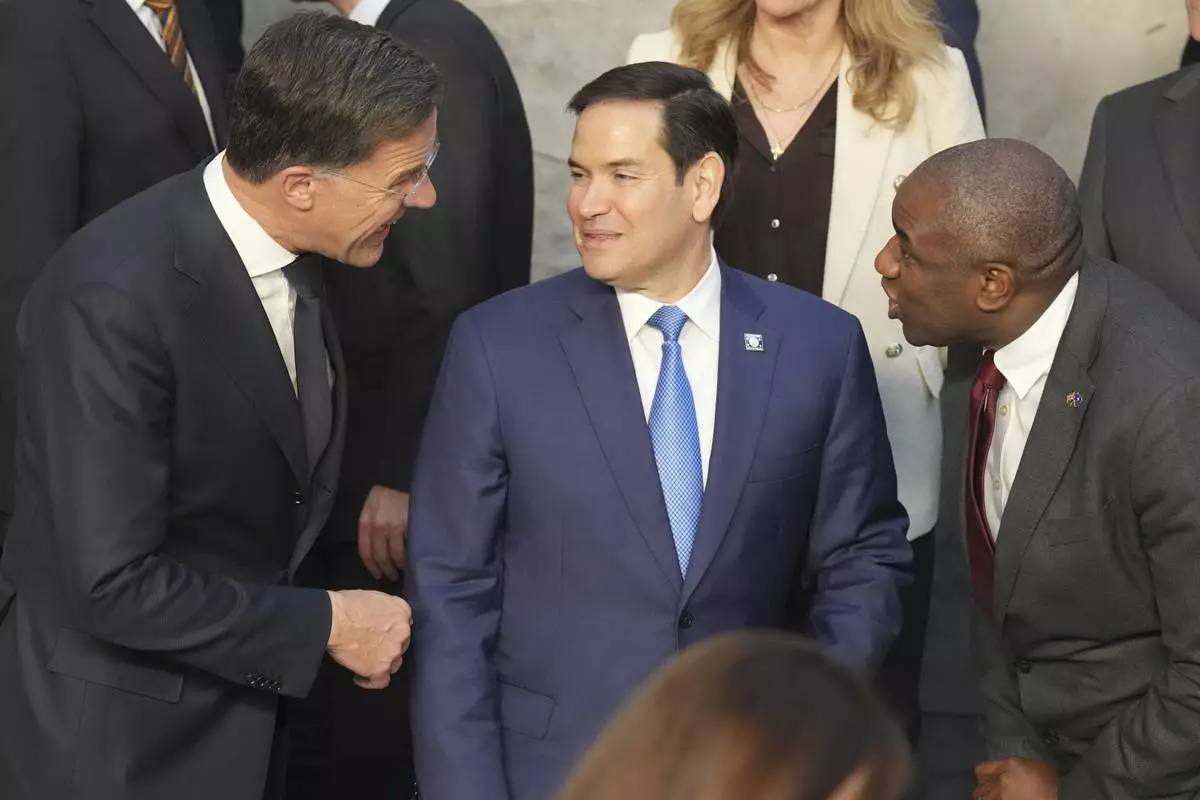
U.S. Secretary of State Marco Rubio, center, NATO Secretary General Mark Rutte, left, Britain's Foreign Secretary David Lammy speak during a group photo of NATO foreign ministers at NATO headquarters Brussels, Thursday, April 3, 2025. (AP Photo/Jacquelyn Martin, Pool)
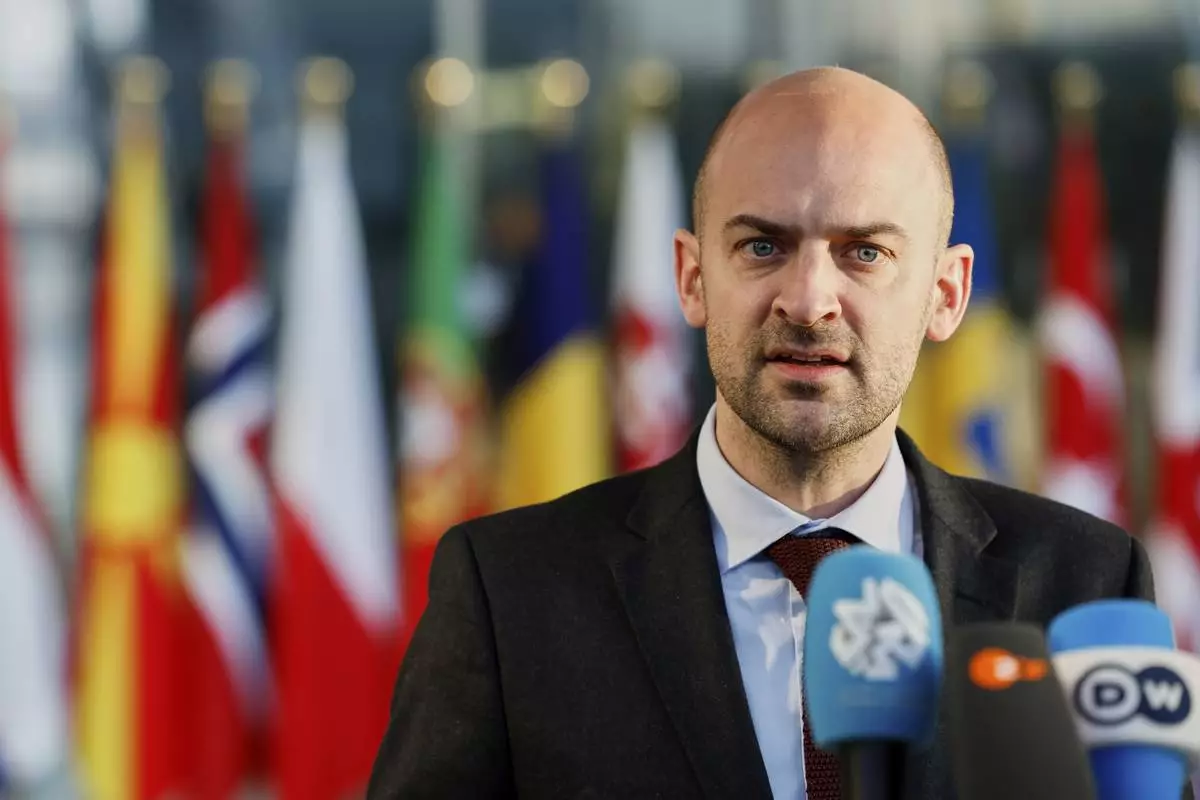
French Foreign Minister Jean-Noel Barrot addresses the media during a meeting of NATO foreign ministers at NATO headquarters in Brussels, Friday, April 4, 2025. (AP Photo/Geert Vanden Wijngaert)
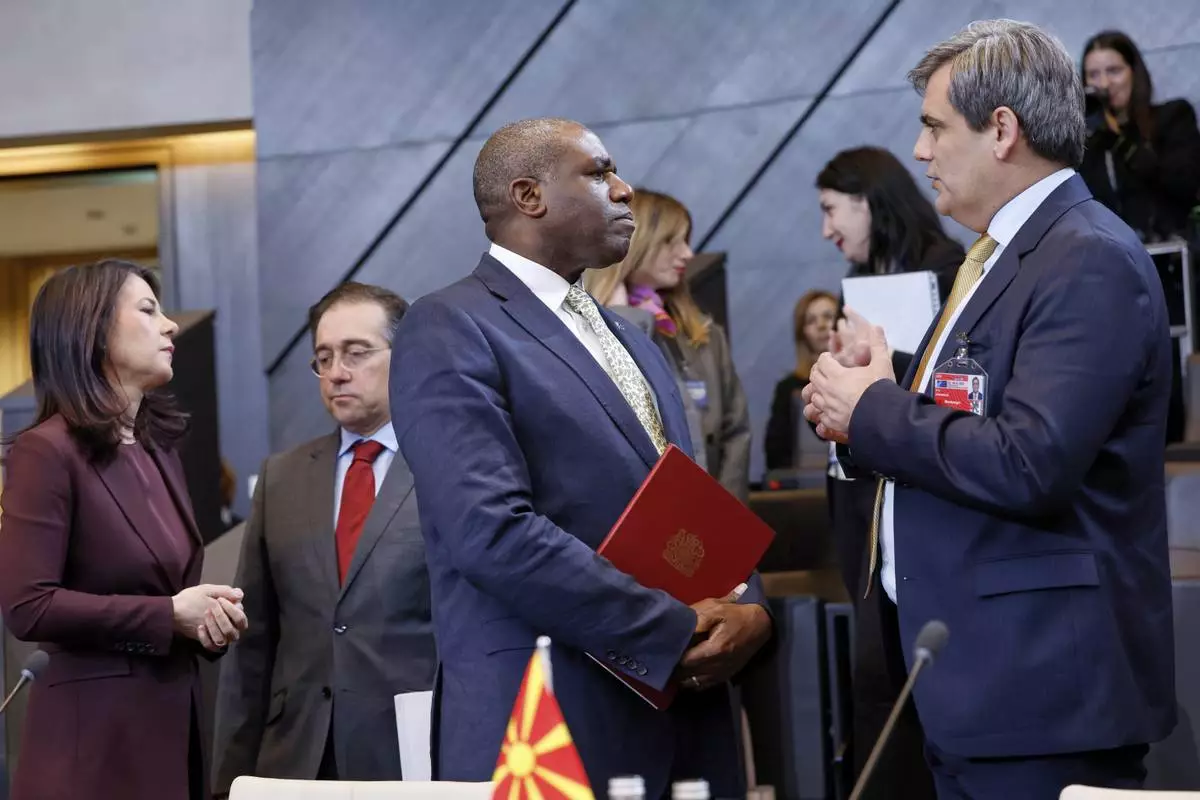
Britain's Foreign Secretary David Lammy, center, speaks with Montenegro's Foreign Minister Ervin Ibrahimovic during a meeting of the North Atlantic Council in foreign ministers format at NATO headquarters in Brussels, Friday, April 4, 2025. (AP Photo/Geert Vanden Wijngaert)
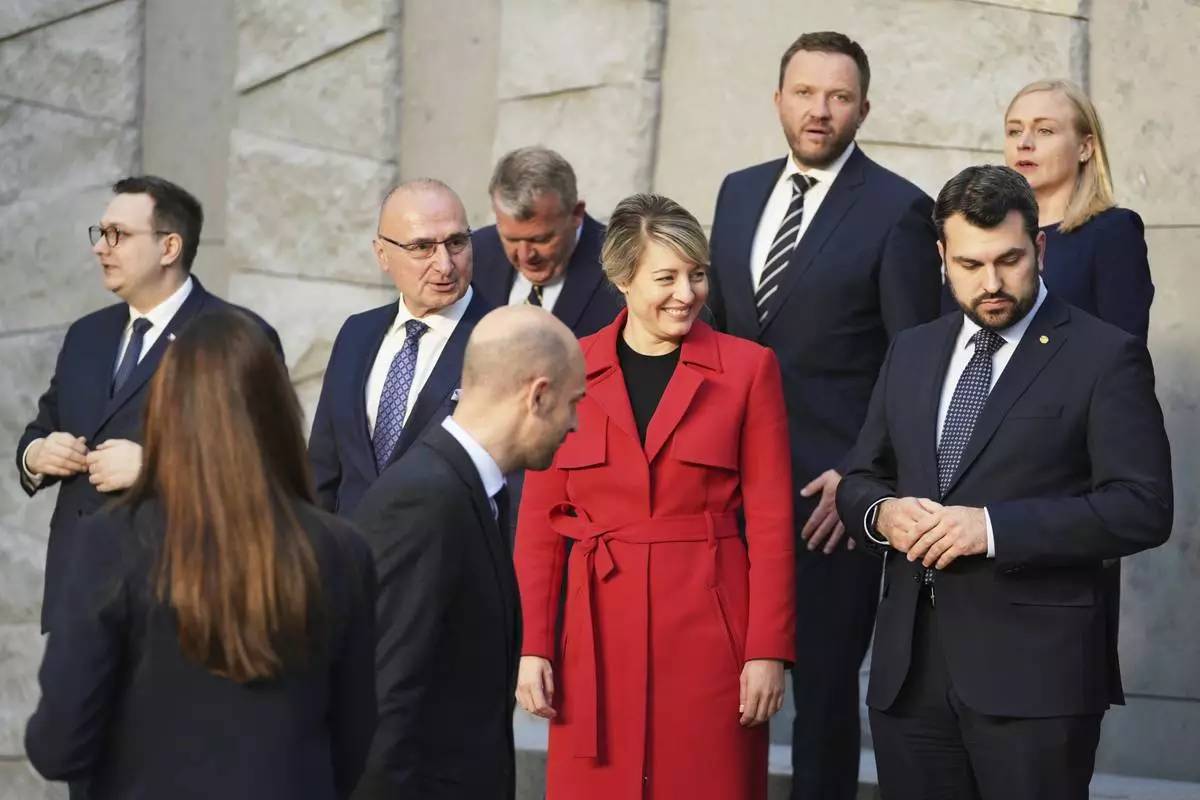
From left, Czech Republic's Foreign Minister Jan Lipavsky, Croatia's Foreign Minister Gordan Grlic Radman, French Foreign Minister Jean-Noel Barrot, Denmark's Foreign Minister Lars Lokke Rasmussen, Canada's Foreign Minister Melanie Joly, Estonia's Foreign Minister Margus Tsahkna, Bulgaria's Foreign Minister Georg Georgiev and Finland's Foreign Minister Elina Valtonen pose for a group photo of NATO foreign ministers at NATO headquarters in Brussels, Thursday, April 3, 2025. (AP Photo/Virginia Mayo)
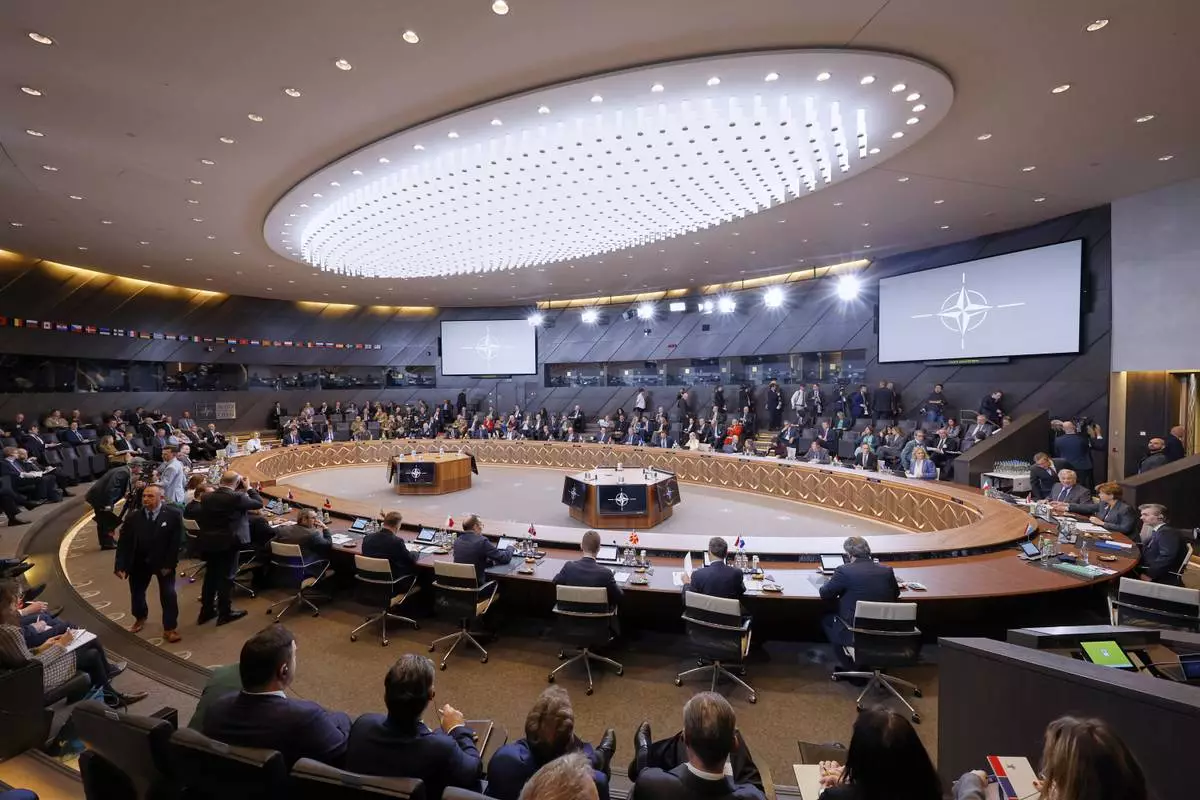
NATO foreign ministers attend a meeting of the North Atlantic Council in foreign ministers format at NATO headquarters in Brussels, Friday, April 4, 2025. (AP Photo/Geert Vanden Wijngaert)
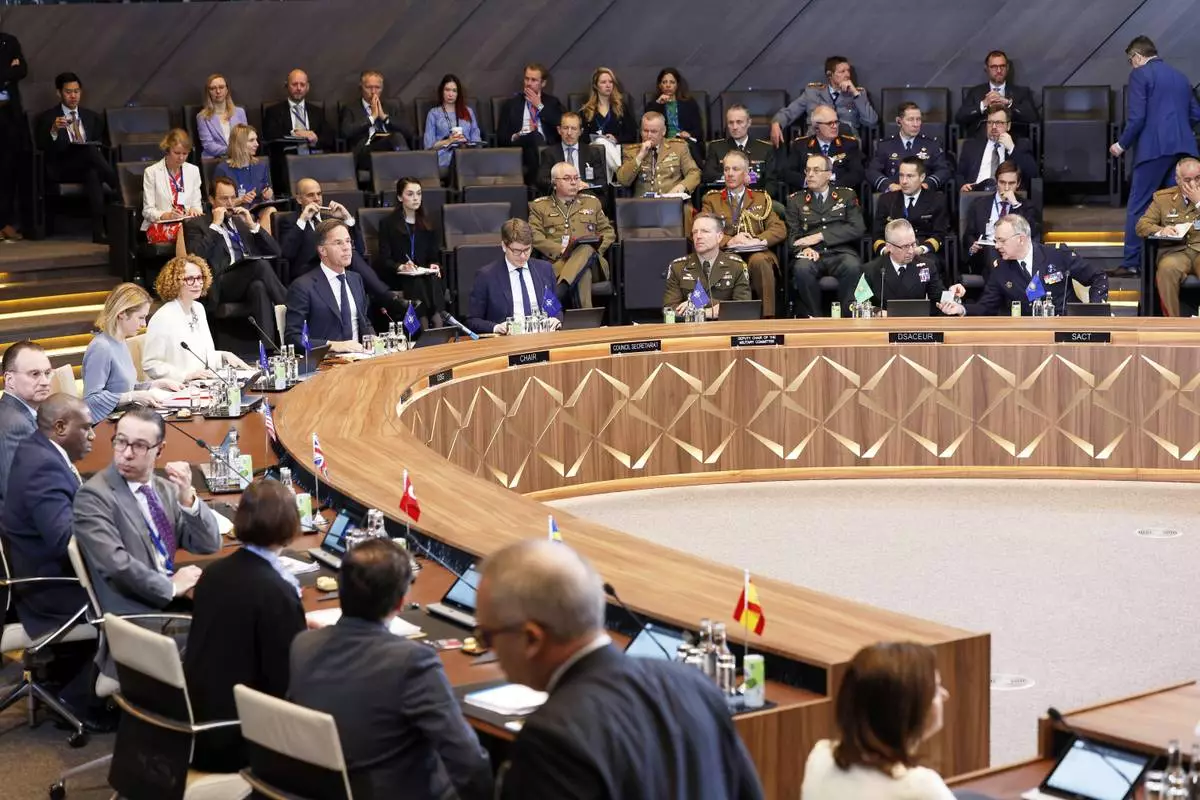
European Union foreign policy chief Kaja Kallas, third left, attends a meeting of the North Atlantic Council in foreign ministers format at NATO headquarters in Brussels, Friday, April 4, 2025. (AP Photo/Geert Vanden Wijngaert)

















